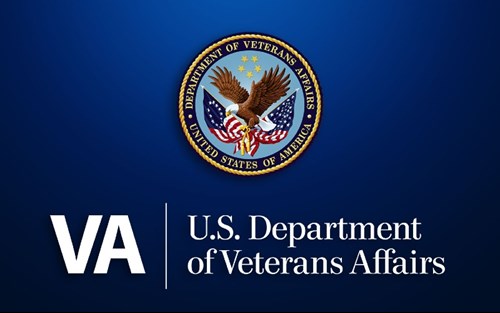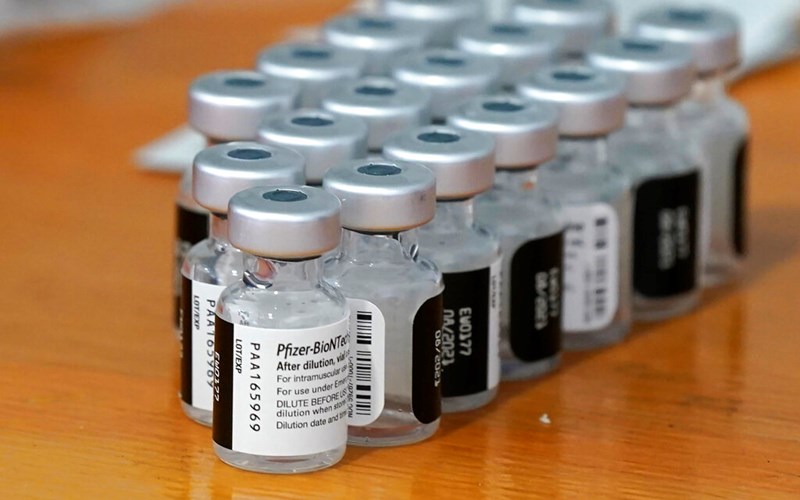"Trey Fleming" (a pseudonym) is currently employed by the Department of Veterans Affairs. The whistleblower is calling on veterans to act and hold the VA accountable, encouraging them to make claims about physical and mental injuries attributed to the processes used by the Department of Veterans Affairs to administer the COVID-19 "vaccine." [Editor's note: Emphasizing that his views do not reflect those of the VA, he spoke to AFN on condition of anonymity for fear of reprisals.]
According to Fleming, veterans who received the jab at a Department of Veterans Affairs facility and were physically injured or suffer mental health symptoms as a result of lack of informed consent or coercion are eligible to file a claim under 38 U.S.C. 1151.
The whistleblower and combat veteran tells AFN it is his desire to "bring to light" how veterans can hold the VA accountable for vaccine injuries and informed consent issues by filing claims under 38 U.S.C. 1151, focusing on COVID-19 vaccine injuries and mental health conditions resulting from VA care. A veteran's claim, he explains, could include physical vaccine injuries and those related to vaccine coercion and denial of informed consent, which may have led to symptoms like anxiety and depression.
 Myocarditis, for example, is one of the adverse physical side effects which could be attributed to taking the COVID-19 vaccine. As revealed to The Epoch Times by whistleblower and active-duty Navy Medical Service Corps officer, Lt. Ted Macie, incidents of myocarditis are on the rise.
Myocarditis, for example, is one of the adverse physical side effects which could be attributed to taking the COVID-19 vaccine. As revealed to The Epoch Times by whistleblower and active-duty Navy Medical Service Corps officer, Lt. Ted Macie, incidents of myocarditis are on the rise.
In addition to the physical harm caused by the jab that's being largely ignored, Fleming points out that "not communicating risks, exaggerating benefits, or employing emotional appeals violates the principles of informed consent as outlined in both 38 CFR § 17.32 and the M21-1 [adjudication procedures] manual."
Informed consent requires honest, comprehensive communication about treatment options, including potential risks and benefits. Fleming contends that for many veterans, this information was misrepresented or omitted.
"[That] undermines the patient's ability to make a fully informed decision and contravenes the ethical and legal standards set by the VA for patient care and treatment," he adds.
A biased culture
Based on his personal experiences with a VA primary care doctor and some subsequent research, Fleming discloses he is convinced that a culture exists within the VA that "perpetuates a bias towards vaccination" and is "dismissive of crucial legal matters such as informed consent, religious liberty, and freedom of speech."
 From what Fleming has experienced and observed, the VA failed to provide proper informed consent to veterans who were vaccinated. "In my assessment," he laments, "millions were likely coerced through inappropriate emotional appeals and pressure in their VA primary care doctors' offices."
From what Fleming has experienced and observed, the VA failed to provide proper informed consent to veterans who were vaccinated. "In my assessment," he laments, "millions were likely coerced through inappropriate emotional appeals and pressure in their VA primary care doctors' offices."
In addition, he says, "a systemic issue of coercion within the VA [is indicative of a] pattern of unethical pressure from VA healthcare professionals."
As a result, the whistleblower argues Title 38 U.S.C. 1151 is an "accountability mechanism" that essentially provides the legal means for veterans to make claims for injuries resulting from VA care, including COVID-19 vaccine injuries and mental health conditions due to lack of informed consent or coercion.
"Veterans injured by VA-administered COVID-19 vaccines may be eligible for compensation as if the injuries were service-connected," Fleming argues. "Mental health conditions such as anxiety and depression stemming from inadequate informed consent or coercion related to the vaccine can also be claimed."
There's power in numbers
For the VA to be held accountable for his allegations, Fleming says the idea must be adopted by many veterans.
"Much of this approach hinges on raising awareness among veterans about their right to claim benefits for mental health issues, such as anxiety and depression, that stem from coercion or lack of informed consent in healthcare decisions, including COVID-19 vaccinations," he explains.
 "By filing claims en masse, veterans can prompt investigations and enforce transparency, ensuring their rights and welfare are upheld," he adds.
"By filing claims en masse, veterans can prompt investigations and enforce transparency, ensuring their rights and welfare are upheld," he adds.
For those willing to file claims, Fleming points out Title 38 U.S.C 1151 has no statute of limitations. "For those who later regret their decision and consequently suffer from medical conditions like anxiety or depression, this provision allows them to file claims at any time," he explains.
In cases where veterans experience vaccine injuries or mental health conditions related to a failure of informed consent, Fleming says filing a VA Section 1151 claim is particularly important. "These claims not only seek benefits for the individual veteran but also serve a larger purpose in exposing systemic issues within the VA," he explains.
"When multiple veterans file 1151 claims related to similar incidents, such as vaccine injuries or informed consent failures, it creates an aggregate data set," he continues. "This data can be requested and analyzed through the Freedom of Information Act (FOIA), providing a means to scrutinize and reveal patterns of negligence or systemic problems within the VA."
The whistleblower concludes by emphasizing that filing a Section 1151 claim in such scenarios isn't just about individual compensation, but it's also a crucial tool for bringing broader issues to light and prompting accountability.







